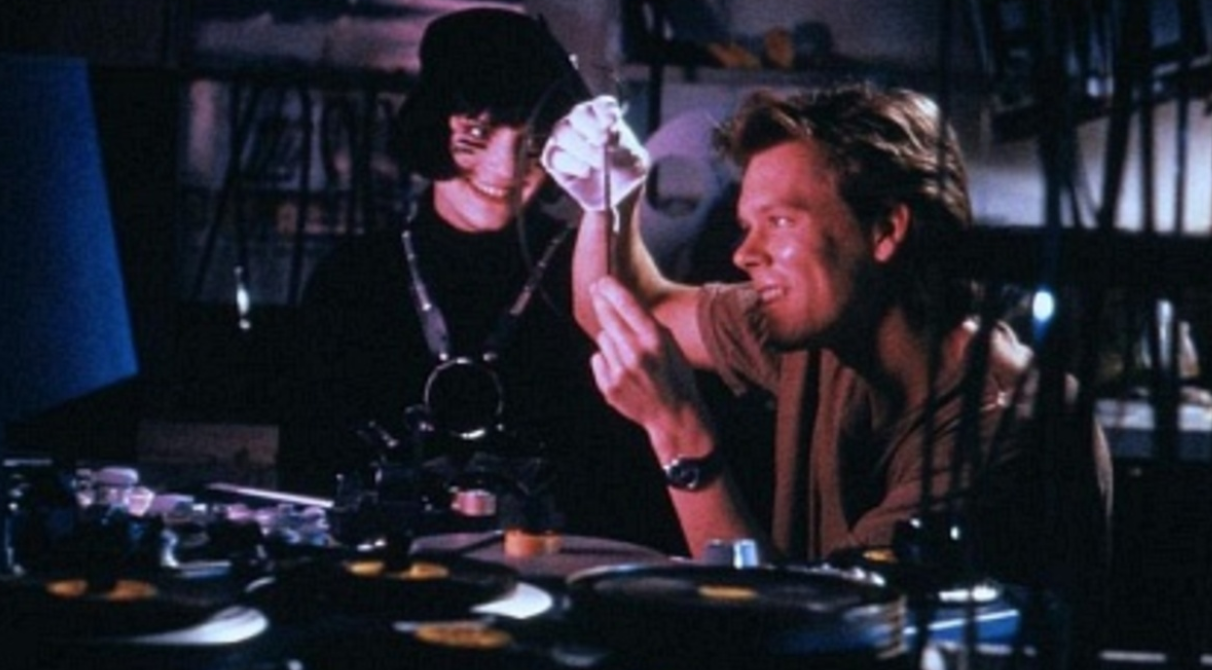As the first film to be both written and directed by Christopher Guest (with National Lampoon Lemmings and This Is Spinal Tap being the first two he wrote), there is no denying the personal nature of 1989’s The Big Picture, about a freshly graduated film student who suddenly generates a heavy amount of Hollywood executive interest after his short movie, detailing the pratfalls of a guy who goes to pick up his date for the evening and ends up engaging in a macabre game of chess with her father, wins the honor of “Best Picture.” During the drawn out scene in which Nick Chapman (Kevin Bacon) eagerly and hopefully awaits his film being included in the consideration of the crème de la crème, Guest is at his most incisive in terms of mockery, with overbudgeted and out of pocket finances creating the likes of horrendous experimental and historical narratives–in short, an exact replica of the sort of slop one finds in the film school trough of ambition.
Later in his career, Guest would once again showcase his acumen for doing a sendup of the Hollywood movie machine with 2006’s For Your Consideration, but it’s very evident that The Big Picture was his jumping off point for so doing, allowing him to create the thesis that he grew to know well not from film school but from his success with This Is Spinal Tap. There’s no question that during his tenure as a successful writer and comic actor for The National Lampoon Radio Hour and Saturday Night Live (both key staples in the recent Doug Kenney biopic, A Futile & Stupid Gesture), the salivation of Hollywood executives over his potential served as terrifying inspiration for the same non-caricatures present in The Big Picture. For it’s quite strange, isn’t it–that people only seem to acknowledge your talent once another authoritative power has chosen to do so?
Nick, whose lifelong dream has been to become a director, blindly believes the oratory insistence at the outset of the ceremony that only those with something pure to say will succeed. What is failed to be added as a caveat, however, is that whatever pure thing you have to say will be contorted unrecognizably by all the many hands and minds involved in the project as a result of “the collaborative process”–which is to say, the requirement of listening to others who control the money that will finance one’s project.
With the likes of studio executive Allen Habel (J.T. Walsh) and stereotyped gay agent of the Velvet Mafia Neil Sussman (Martin Short) vying for Nick’s time, he suddenly becomes all too eager to sell out, no longer possessing such former feelings of loyalty to his longtime girlfriend, Susan (Emily Longstreth), or his best friend and the very person responsible for the cinematography of the short film that launched his so-called career, Emmet Sumner (Michael McKean). All at once, his attentions have turned to industry parties and the two-bit actresses that populate them–case in point being “TV star” Gretchen (Teri Hatcher, well before her Desperate Housewives comeback), who grows suddenly quite fond of him when Allen introduces him to her as an up and coming director.
Often surreal–in a fashion that perhaps no other Guest movie is–The Big Picture‘s meta nature allows for many scenes of tongue-in-cheek fantasies, in which Nick imagines the ways in which the original concept for his movie (one that takes place in a cabin in the woods and is centered around a male-male-female love triangle–Jules et Jim, anyone?) will be altered. Eventually, it goes from an Ingmar Bergman-esque winter’s tale to a National Lampoon’s Van Wilder beach house college party narrative. And that’s how it has always gone in the studio system, or even in the world of “indie” movies–unless, of course, you’re Wes Anderson and you have enough of a following to simply get your budget via the askance put forth in a Kickstarter. And why? As a result of those with excess and undeserved amounts of money and power feeling compelled to exert their “creative” clout, unwilling to simply let go of the reins and serve as a bona fide patron of the arts–instead preferring to needle their way in with “little suggestions” “here and there” that inevitably corrupt the entire project. Alas, that’s what it takes to participate in the game that is the film industry. Unless, of course, you, like Nick, suddenly become wise to how to play it, instead of serving as a pawn in it.
Interestingly, in spite of watching The Big Picture in the post-#MeToo climate, it doesn’t feel as dated as one would expect, as the tropes Guest employs to rib the movie industry aren’t likely to change anytime soon, not so long as most of the distribution power lies in the hands of major studios and the “independent” production companies they wield control over.
In such a way, those aspirants of being part of the cinema world who might still regret not having gone to film school can take continued comfort in the not so incongruous scenarios of The Big Picture, which, even if it isn’t the best among Guest’s filmography, offers the sort of rare assurance about one’s rejection from Tinseltown in a way that perhaps only Sunset Boulevard, The Player and Kiss Kiss Bang Bang have been able to in a similarly darkly comedic manner.






















